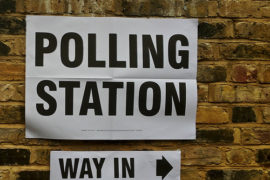News-watch released last weekend a pair of meticulously-researched reports that exposed yet again the BBC’s continued serious bias in the reporting of Brexit.
One survey showed that during the General Election, there was a heavy imbalance towards anti-Brexit opinion; the other, that over 18 years, the Corporation has covered left-wing views in favour of withdrawal at only derisory levels – thus effectively ignoring the views of at least 3.5m Labour voters who supported Brexit.
The BBC’s response? In a word, abuse. The Press Office – utterances from which have to be sanctioned at the highest level – claimed, in effect, that the News-watch work was not worth the paper it was written upon.
They said:”We do not recognise the allegations made by News-watch and to describe this as a ‘report’ would be a gross overstatement for what is a defective and loaded piece of work which wouldn’t pass basic academic scrutiny”.
Their evidence for this unpleasant ad hominem attack? Zilch. News-watch has been trying to get the BBC to engage with News-watch reports for 18 years, but they never have. The Corporation claims with bull-headed obstinacy that the so–called complaints procedure precludes consideration of such detailed analysis – complaints must be confined to single programme issues.
In addition to the Press Office attack, BBC personnel, including the editor of the Andrew Marr show, then also engaged in a twitter storm of insults against the News-watch reports (h/t Craig Byers of Is the BBC Biased?).
The next stage in the saga was that on Monday, the website Open Democracy – a principal funder of which is George Soros – added more ‘ad hominem’ vitriol about News-watch, its methodology and its funding. A full-scale hatchet-job.
Was this coincidence? Or the BBC co-operating, or working in tandem with, attack dogs who share the Corporation’s views about Brexit?
Whatever the chain of cause and effect, it is certain that Open Democracy and the entire Soros empire are engaged in a full-scale battle to prevent the UK leaving the EU. Its contributors include Roland Rudd, the brother of Amber Rudd, who was a major figure in and behind Britain Stronger in Europe, the designated Remain organisation.
Mr Rudd is the UK lynchpin in the aggressive £13.7 billion drive by Soros – the amount he has just donated to his ‘charitable’ interests such as Open Democracy – to achieve EU integration, allow fully open borders, and smash the nation state.
And what was the evidence for the Open Democracy attack on News-watch in terms of the BBC bias ? Open Democracy canvassed the opinion of an academic called Dr Tom Mills, who works at the University of Aston and is linked to group which seriously believes that the BBC is right-wing.
‘News-watch and other pro-Leave lobbyists are obviously trying to influence debates around Brexit in certain interests… through what looks like a rather crude coding framework. The problem with dividing everything into pro and anti camps is that it makes a substantive and informed discussion of the issues at stake very difficult… what’s lacking is a clear and transparent methodology that can deal with how the underlying issues are dealt with, rather than the question of how much time is given to two sides of a political argument.’
Like the BBC, it seems he had not read the reports properly before commenting. Every News-watch survey contains a clear outline of the methodology. His point about ‘a rather crude coding framework’ is utter tosh. Even a cursory reading will reveal that the classifications involved in the surveys are complex, nuanced and highly detailed. They are most definitely not – as he implies – binary or simplistic.
Perhaps what Dr Mills is actually trying to say rather crudely that putting on fewer supporters of Brexit than those who oppose it doesn’t matter.
The reality of News-watch funding is that it is a minnow. Costs amount to the tens of thousands. Donors include a charitable foundation, individuals from a variety of backgrounds (and political affiliations) but none of them have any influence (or have ever had) on the content of reports.
By contrast Open Democracy, according to its website, receives millions of pounds from a variety of left-leaning trusts and Soros-related sources, all of which clearly want to subvert democracy by reversing the Brexit vote. And as noted above, this is all part of an £13.7 billion effort by George Soros and his many-tentacled empire to reinforce and expand the European Union. And to topple democratically-elected governments.
Aided and abetted by the BBC?







